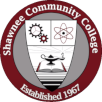 Policy
Policy
Policy Type: Board – Delegation of Authority
Responsible: President
Related Policies: B2000, B2001, B2002, B4000, B4001, B4002, B4003
Linked Operating Standards: B4000.01
Related Laws: 110 ILCS 805/ Illinois Public Community College Act
Related External Standards: None
HLC Criterion: 2C2C In discharging its fiduciary duties, the institution’s governing board is free from undue external influence and empowered to act in the best interests of the institution, including the students it serves., 3F3F The institution improves its curriculum based on periodic program review., 3G3G The institution’s student success outcomes demonstrate continuous improvement, taking into account the student populations it serves and benchmarks that reference peer institutions.
Policy Statement
According to the Illinois Community College Act, the Board is exclusively responsible for the oversight and operations of the College. To fulfill professional expectations and Higher Learning Commission accreditation obligations associated with operating the College, the Board hires a President and delegates operational duties to that person. Since the President operates the College as the Board’s primary employee, the Board has a direct interest in monitoring the President’s performance and providing feedback in ways that support the President’s success. To accomplish this, the Board and the President create a partnership of focus and mutual accountability using the tenets of policy governance.
In this collaborative relationship, the Board is responsible for clearly defining the Strategic Outcomes (which identifies the desired results of the College’s work), and the President is responsible for determining the operational activities (i.e., strategies and methods) to accomplish the Board-defined Strategic Outcomes. To facilitate and strengthen communication, the Board clarifies the responsibilities of the President, defines performance expectations for the President, and communicates specific leadership competencies that the President must demonstrate as they carry out their duties. By doing so, the Board effectively defines, monitors, evaluates, and assures accountability for the Strategic Outcomes as well as provides the President with the necessary tools for continuously improving the quality of College operations.
To facilitate and sharpen Board decision-making, the Board will engage in a program of self-evaluation to determine if the Strategic Outcomes and Executive Limitations are appropriate, review the Board’s compliance with defined governing principles related to Board and Trustee responsibility bylaws, and identify ways to improve their support of the President and College.
Monitoring Board Effectiveness
The Board will conduct an annual self-assessment in January of each calendar year. This self-assessment will be based on a summary/review of its performance over the preceding year. The purpose of this evaluation is to allow the Board to assess it own processes and performance as they relate to Board0defined policies in the Governance Process and Delegation of Authority categories.
The desired outcomes of the Board’s self-assessment process include:
- A summary of Board accomplishments.
- A clearer understanding of the Board’s primary roles, responsibilities, and characteristics of effective governance.
- Clarification of mutual expectations among Trustees.
- Identification of opportunities for individual Trustee development.
- Improved communications among Trustees and between the Board and President.
- A plan for strengthening the working relationship between the Board and the President.
- A renewed sense of commitment to the College’s Strategic Outcomes.
- Stronger alignment between Board practices and College performance expectations.
- Improved engagement with institutional strategy and College-wide priorities.
- Identification of problems, potential issues, and areas for improvement.
- An opportunity to discuss and resolve matters that may hinder Board performance.
- Identification of strategies to enhance Board performance.
- Consensus on goals and priorities to strengthen Board performance in the upcoming evaluation cycle.
In addition to its annual self-assessment, the Board may engage in supplemental reflection or developmental activities to support continuous improvement. These may include facilitated retreats, structured peer feedback, or review of governance best practices aligned with accreditation expectations. When used, such activities will be framed around Board policy and focused on strengthening governance practice – not individual critique.
| Change Log | Governance Unit: Board of Trustees |
| Date | Description of Change |
| 03-07-22 | Initial Adoption |
| 06-15-23 | Annual Board Self-Assessment to be in January |
| 08-15-24 | Board Reviewed, Clarified Comprehensive Review Language and Frequency |
| 08-21-25 | Revised to Eliminate Comprehensive Review Language, Clarify Annual Self-Assessment Outcomes, and Align with HLC Expectations for Board Effectiveness and Policy Governance Principles. HLC Criterion Updated. |
